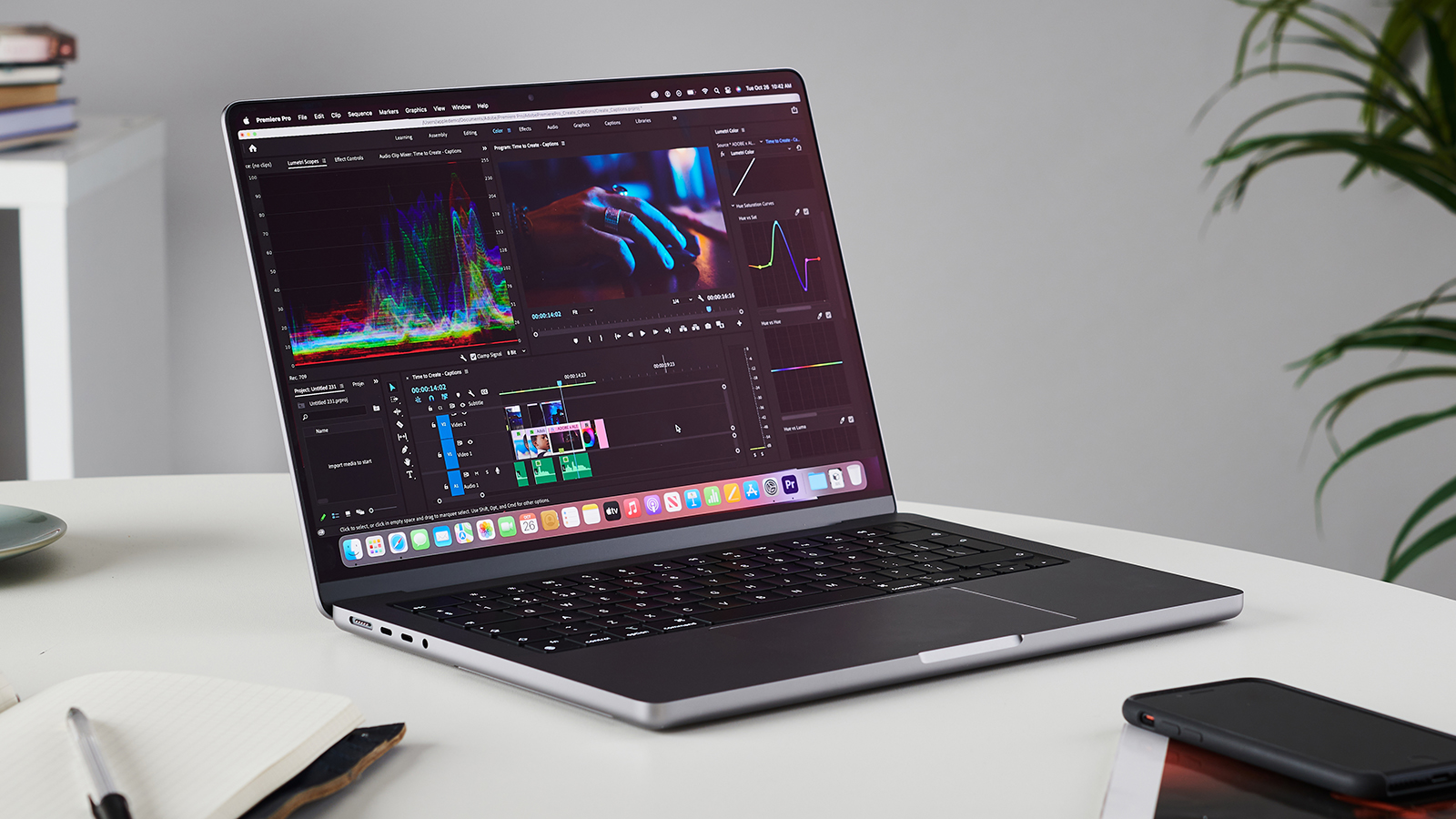MacBook Pro 2021 is easier to repair, but Apple’s still lagging behind Microsoft
Better than previous MacBook Pro for repairability, but still some way to go

The new MacBook Pro has been given the teardown treatment by iFixit, and the good news is that there is some improvement on past versions of Apple’s Pro laptops – although equally there’s still some way to go for Tim Cook’s firm.
In the MacBook Pro (2021) teardown, notable improvements were found with the battery, which is no longer slathered in glue and stupidly hard to remove as it was with the MacBook Pro 16-inch (2019).
The experts at iFixit explain that the battery now has pull tabs, with no copious amounts of glue needed, making taking the power pack out a lot easier – and furthermore, it’s not trapped beneath the logic board. However, you do need to remove the trackpad to get to some of the pull tabs used to extract the battery, which is a slight complication.
The battery was successfully replaced with both the new MacBook Pro 14-inch and 16-inch versions. (Incidentally, iFixit notes that these models are essentially the same in terms of their internals, and while there are obviously some variations in minor things like brackets and chip placement, the differences are mostly about scale as you might imagine).
Overall, the new MacBook Pros make “even better use of interior space”, and iFixit was impressed with the cooling system, with the fans also able to be removed and replaced, as well as ‘many’ other components which are modular, including most ports (that means the MagSafe too). So, if one of these connectors (or a fan) dies, it can be switched out with a (relatively) minimum amount of hassle.
Apple has taken another positive step in that replacing the display has been made easier, too, with less fiddly bits in terms of screws and springs to deal with.
It wouldn’t be an Apple teardown without problems, of course, and the main negatives that iFixit highlights are that pentalobe screws make repairs trickier, the speakers are glued in, and the keyboard is difficult to replace. Oh, and the storage is soldered (again). Also bear in mind that while the battery is much better for repairability as mentioned, replacing it is still “not exactly easy” as the teardown notes.
Sign up for breaking news, reviews, opinion, top tech deals, and more.
Analysis: It’s good to see progress, but Apple is still behind the curve
The final mark for iFixit’s repairability score for the new MacBook Pro is 4 out of 10, which might not sound great – and indeed it’s clearly on the lower side of middling – but it’s still a marked improvement from the pitiful 1 out of 10 awarded to the MacBook Pro 16-inch (2019). Or indeed the very poor 2 out of 10 score achieved by the MacBook Pro 13-inch from 2019.
Apple is making some progress, then, but Tim Cook’s firm still needs to do better, really. Especially when you bear in mind that Microsoft – another past offender in the poor repairability stakes – has made even bigger strides recently with the likes of the (last-gen) Surface Laptop 3 getting a 5 out of 10, and the Surface Pro X outdoing that with a 6 out of 10.
Moreover, Microsoft has recently pledged to make its various bits of hardware – consoles included – easier to repair following pressure applied by a non-profit shareholder advocacy group. Microsoft is investigating how to make improvements along these lines, as well as reducing the environmental impact of its devices, and has promised to act on these findings by the end of 2022.
Apple has been on the receiving end of a similar shareholder resolution, but with no reaction from the company yet. And given that other PC makers are furthering efforts on this front – big players like Dell and HP – the MacBook manufacturer is going to look distinctly behind the times in an era where environmentally-friendly, and indeed consumer-friendly, hardware is increasingly being seen as a vital avenue to push along.
- Shop all the latest MacBook Pro deals and sales
Via Wccftech
Darren is a freelancer writing news and features for TechRadar (and occasionally T3) across a broad range of computing topics including CPUs, GPUs, various other hardware, VPNs, antivirus and more. He has written about tech for the best part of three decades, and writes books in his spare time (his debut novel - 'I Know What You Did Last Supper' - was published by Hachette UK in 2013).